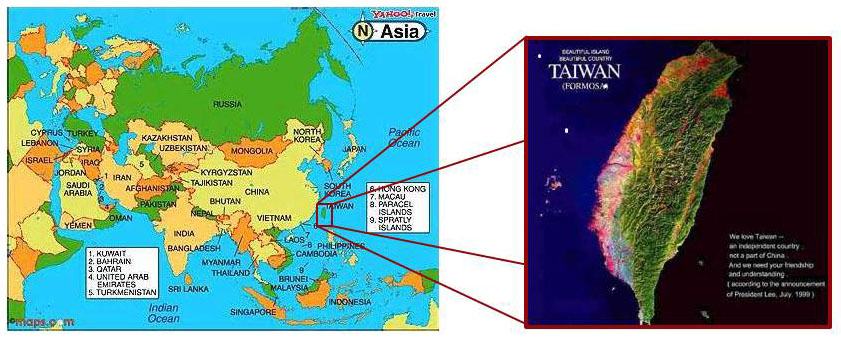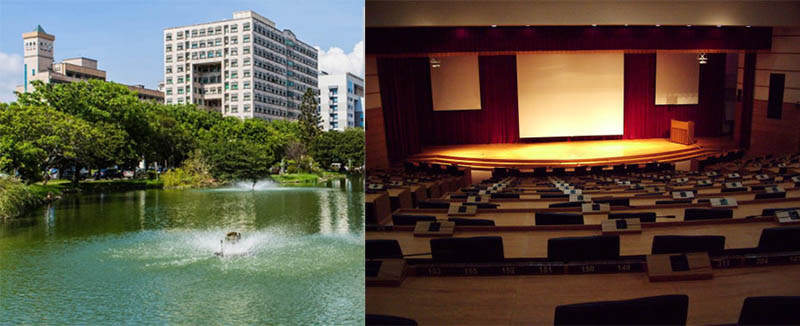In the 16th century, Portuguese ships sailed to Southeast Asia and discovered Taiwan. Sailors aboard these ships were enchanted by the island's natural beauty and majestic scenery. They exclaimed, "Ilha Formosa!", which is Portuguese for "beautiful island!". Ever since, this name has been synonymous with Taiwan.
Taiwan's total land area is only approximately 36,000 square kilometers (14,400 square miles). The island is shaped like a yam that is narrow at both ends; it lies off the south-eastern coast of mainland Asia, across the Taiwan Strait from Mainland China. To the north is Japan; to the south is the Philippines. The beautiful island is on the western edge of the Pacific Ocean. The Central Mountain Range divides the east and west coasts and stretches from north to south. Taiwan’s diverse variety of geo-graphical features include mountains, hills, plateaus, plains, basins, and coastline, all of which have a wide range of thriving unique flora and fauna.
Taiwan's geographical and historical uniqueness is associated with a diversity of ethnic groups, cultures, and languages. The members of the twelve officially recognized indigenous tribes number 380,000; each tribe has its own social structure, language, and cultural traditions. Taiwan has a population of 23 million people, who speak regional Chinese dialects along with Mandarin. People in Taiwan enjoy a free, democratic, and safe society. The island has experienced an economic miracle and made achievements in political democracy that have attracted global attention. Today, Taiwan boasts an excellent infrastructure, convenient transportation system, and high-quality communication services. Even in the face of several international energy crises and economic downturns, Taiwan also accomplished a remarkable record of economic development and political democracy by virtue of the perseverance and unremitting efforts of its people.
Taiwanese pride themselves on their hospitality, and are committed to creating a friendly and convenient environment for international visitors.

Taichung, officially known as Taichung City, is a special municipality located in center-western Taiwan. Taichung has a population of over 2.7 million people, making it the third largest city on the island after New Taipei City and Kaohsiung. On 25 December 2010, Taichung County merged with the original provincial Taichung City to form the special municipality. The city's motto is "economic, cultural and international city".
Taichung has been praised as the best city to live in several times for its pleasant weather. Thanks to High Speed Rail, the living sphere mobility in Taiwan has been made possible within a day. Leaving for another city is no longer a dreadful thing to do. A weekend getaway is sufficient for you to fully explore Taichung City, the massive garden rich in natural beauty and splendid tourism. The entire city is just like a large-scale playground where sun always shines!
 http://travel.taichung.gov.tw/
http://travel.taichung.gov.tw/
The Taichung Campus contains the College of Liberal Arts, the College of Agriculture and Natural Resources, the College of Science, the College of Engineering, the College of Life Sciences, the College of Veterinary Medicine, the College of Social Sciences and Management, and the Extension Division for Inservice and Continuing Education. It is located in the south of Taichung City with an area of approximately 53 hectares. The university owns four experimental forests located in New Taipei City, Nantou County, Taichung City, and Tainan City, respectively. It also owns two experimental farms located at Wufeng and Wuri Districts in Taichung City.
